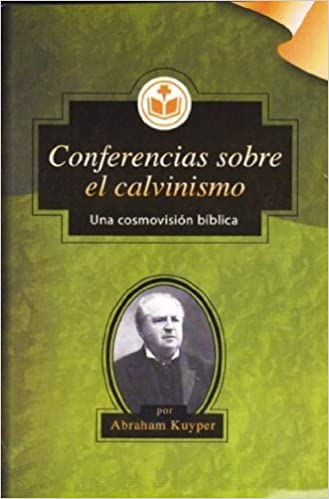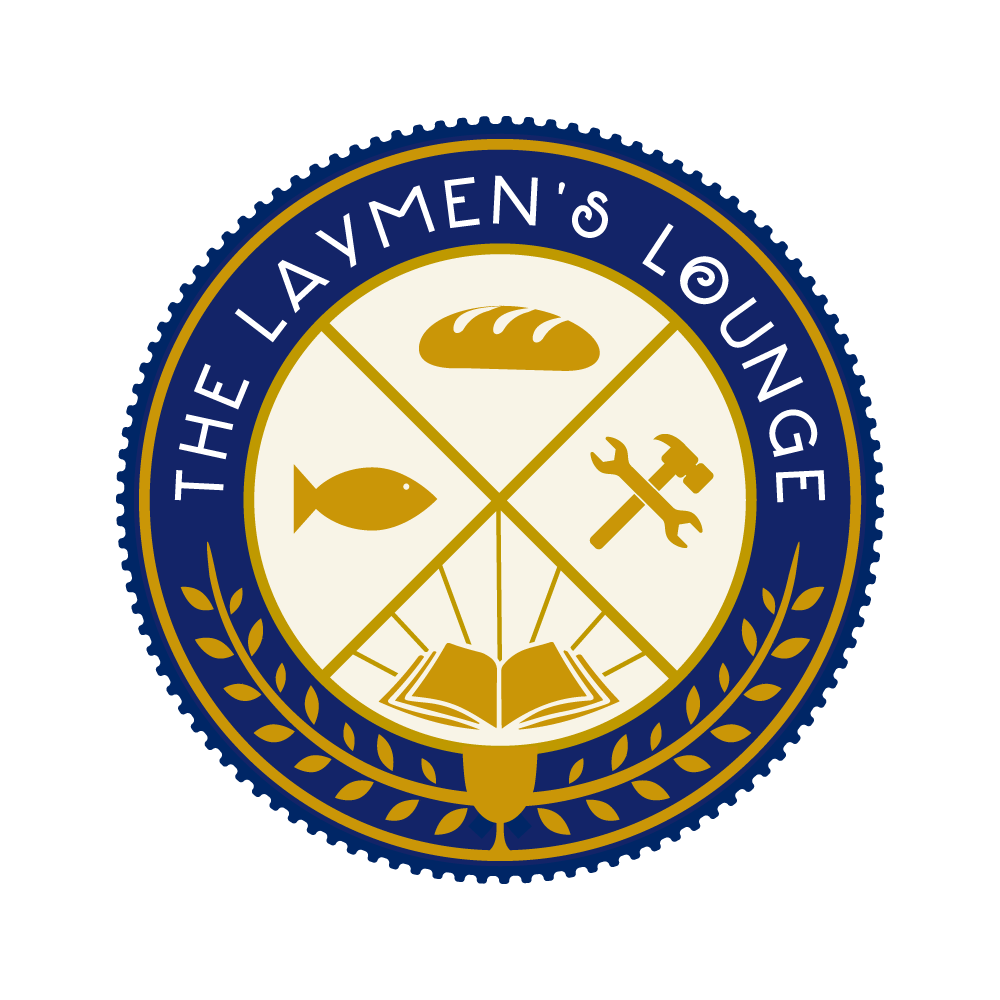NOTE FROM THE EDITOR: This is the fourth article in a series that will run the next few months called “The State of Neo-Calvinism.” Come back each week to read about the state and influence of Neo-Calvinisim in nations all over the globe. To listen to the kick-off podcast interview with George Harinck click here. For Jordan Ballor on the USA click here, Thiago Machado Silva on Brazil click here, Surya Harefa on Japan click here, and for Steve Bishop on England click here.
(Español abajo)
by Andrés García.
Mexicans today live their lives in a context quite far from God. Little is known of Calvin, of the reformers, of church history; for the same reasons, knowledge of Neo-Calvinism is unknown in much of the country. However, some churches of Calvinist tradition jealously guard these roots, so that Calvinism and Neo-Calvinism in Mexico is not entirely muted.
It is well known to those of us who know Neo-Calvinism that comes from a Dutch Calvinist Christian tradition. This distinction is important, because there is an understanding of what Calvinism of the sixteenth century is and its implications; and although there are churches in Mexico that adhere to this tradition and that know the bases of Neo-Calvinism, they refuse to renew themselves on this basis.
Calvinism and its impact on culture
Calvinism has really influenced only the Mexican Reformed churches without access to other spheres. This is because, after an arduous study of Calvin and his Institution to the Christian Religion, Mexican believers and ecclesiastical leaders still see dangerous, even diabolical, openness to social spheres, among which is politics. This has been a major problem for us who are familiar with this tradition and who are fighting for a reform of culture, as it is a brake on our actions.
Calvinist churches often adhere to a conservative liturgy, know and study the creeds and confessions of the church on a daily basis, and gradually grow in ecclesiastical knowledge. But their action cannot go beyond the walls of the church, as most are affected by secularism, as are most churches of other denominations.
Although Calvin’s real influence in Geneva was, for the most part, to reform the church and the state, the church in Mexico that adheres to this tradition has failed to influence Mexican politics and, as a consequence, the State, so the Calvinist church has become accustomed to being in the shadows and not participating in the cultural reform that Mexico so badly needs.
But I do not say this to detract from Calvinism in Mexico, nor is it an accusation against the Mexican Calvinist Church, but I want to refer to the reality of Calvinism that has not managed to stand out in a country as needy as Mexico is, and the reality is that a good group of Mexican Calvin’s is needed (so to speak) who can truly influence, at least, the State.
Neo-Calvinism in Mexico: Background, problems of understanding and its actuality.
Background
The Dutch Neo-Calvinist tradition has made a lot of impact not only in the ecclesiastical sphere, but also has its importance in other areas, such as politics, academies, churches, companies, the media (newspapers), among others.
But Neo-Calvinism is distinguished by a figure that has given it, to date, relevance and fame in many institutions, so that many intend to assume or imitate what was done by this great character. I am talking, of course, about Abraham Kuyper.
Kuyper’s Princeton lectures set a precedent for the first contact of the neo-Calvin movement in America. For their part, Evan Runner and, eventually, Gordon Spykman were the ones who spread this cultural movement most widely, supported by what would turn out to be a cosmonomic philosophy created by Th. Vollenhoven and Herman Dooyeweerd.
The roots of Neo-Calvinism in Mexico date back to the 80s, when Dr. John Paul Roberts brought reformational thought to our country. Since then, Neo-Calvinism has tried to sow in ecclesiastical institutions without achieving a consolidated fruit to date.
It is difficult to enumerate the exact number of institutions bearing the distinctive Calvinist and consequently Neo-Calvinist, since Neo-Calvinism is understood as a cultural movement that gives light to institutions on the basis of divine sovereignty.
But the surprising thing is that we have noticed that it is not necessary to be of a specific denomination to be Neo-Calvinist, but that what Kuyper did in those years transcends to this day, above all, in different Christian currents, although there are also those who initiate their political proposals following the example of Kuyper.
Common problems
One of the hallmarks of Neo-Calvinism is sphere sovereignty. I do not intend to go into more than one thing in explaining this matter because it is known to many. However, this principle, which is not Kuyper’s discovery, but something we can find in creation, is not fully understood by those who intend to put it into practice, and that is what I intend to encompass.
Most who seek to reform their lives so that they can imitate what Kuyper did, often have problems in understanding this principle and end up doing the opposite.
This can be explained in several ways. It may be because John Calvin, his writings and works are not fully understood in the first place. This misunderstanding begins when Calvin is believed to have intervened in the ecclesiastical sphere and the state. On a daily basis, it is presumed that Calvin’s form of government was totalitarian and this affected scientific progress. Michael Servetus, who to this day is taken as a martyr of Calvin’s reformation; much has to do with this confusion being a recognized figure, later, of medicine. Although it is speculated that the cause of his murder was the accusation of his proposal to free thinking, no one attributes to him that he denied the Trinity and, although this seems little today, it has many implications, even in the scientific field, which was where Servetus worked.
All this kind of confusion means that Calvin is not fully understood, but only by those who study his works. That’s why Kuyper came to have such an impact on his movement, as he had Calvin as one of his leading thinkers.
The problem, then, is that Neo-Calvinism is misinterpreted in Mexico because Calvin is not well understood or does not know him.
Neo-Calvinism today
Today, many are self-proclaimed Neo-Calvinists, coming from the Kuyperian movement. But each of these groups that call themselves Neo-Calvinist, usually classify Kuyper in a traditional line but at their convenience. In this way they basically avoid all of Kuyper’s work and its implications, so that there are, for the most part, humanist groups that call themselves Neo-Calvinists
But what you see in Mexico as Neo-Calvinism are church groups and groups trying to reform politics. Although most of these mentioned usually study Kuyper’s work, they ignore his background completely, so that in this way they fail in their attempts and proceed to give in and start over. They base their projects with a view to reforming a man who has not been affected by sin and who is capable of arriving at a reform by means of a reason in which certain concepts must enter. Of course, this is not Calvinism.
It is true that in Mexico there is a political problem that affects the whole country. It is true that education is provided by the State. It is true that the economy is not at all favorable for every Mexican household. In all of this, the state is a factor in how things are. But the enemy of Mexico is not the State, because there is something deeper that must be attacked with more vigor, this is, of course, the sin that is in the heart, because it is in this where idolatry and rebellion are housed.
However, there are groups in which Neo-Calvinism is taken more seriously and seek to undertake long-term projects, educating children to have more impact in the future. This is how we can find groups in the center of the country and south, above all, that make a reform from the ecclesiastical, mainly, and the educational, without leaving aside the labor trade of each one so that everything is united in the same effort. They all have in common the constant study of Calvin.
It is very sad that in Mexico there are very few real reform efforts. But it is truly encouraging to see the efforts, albeit small, of those who have understood Neo-Calvinism in its entirety and convey it with great emotion to the children of each church. Eventually, the fruit of this effort will bring reward by seeing a more consistent reform, when these children grow up and have an impact on the environment.
Neo-Calvinism: a hope given by Christ
Mexico has been characterized by being a land of idolatry, in which it is ordinarily sought to have easy solutions. This problem has been inherited for generations and, although not all of them are like that, on the outside they look at us with suspicion because of what has been reported about us.
But Christ has come to radically change the lives of those whom the Father, in eternity, has chosen for his glory. It has united them in a deeper motive that gives them reason to do things. This should not be confused with some specific denomination, but with the mere body of Christ manifesting itself in time and in the environment.
I must say the following about this:
The main support of the church lies in the unity of the body of Christ, which is manifested in each institution created and which in turn is reformed according to its need. There is no community or church isolated from this body that depends on itself, because the variety of hearts together creates diversity to take control of the culture in the same sense, and this does not mean that there is reform in a single community or country but of the unity of the members that make up the body of Christ and that have to work to achieve a comprehensive reform. This is something mysterious but that is fulfilled with the passing of time. There is no unity or prosperous work by a particular impulse isolated, but only in the redempting power of Christ Jesus, who gives unity to the diversity of hearts, as well as to the institutions to have dominion over everything and create a true reform.
In this way, Kuyper said is fulfilled:
There is not a square inch in the whole domain of our human existence over which Christ, who is Sovereign over all, does not cry, ‘Mine!’
Andrés García Guízar. Born in Mexico City on February 26, 1986. He studied the bachelor’s degree in Theology and Reformation Philosophy at the Higher College of Theology “Reforma Protestante”. Professor of Philosophy at “John Paul Roberts Haine” College from 2018 to 2021. Professor of Reformation philosophy at the Higher College of Theology “Reforma Protestante” in 2021. Founder and editor of El Reformacional, in which he has written numerous articles critical of Mexican culture since 2019. Secretary of media of the Mexican political party Frente de la Reforma Nacional. Professor of Dogmatics and Philosophy at the University of Human Studies and Training.

Por: Andrés García.
La actualidad mexicana vive un contexto bastante alejado de Dios. Poco se conoce de Calvino, de los reformadores, de la historia de la iglesia; por las mismas razones, el conocimiento del Neo calvinismo es desconocido en gran parte del país. Sin embargo, algunas iglesias de tradición calvinista resguardan con celo estas raíces, de modo que el calvinismo y el neo calvinismo en México no está del todo apagado.
Es bien sabido por los que conocemos el neocalvinismo que procede de una tradición cristiana calvinista holandesa. Esta distinción es importante, pues hay entendimiento de lo que es el calvinismo del siglo XVI y sus implicaciones; y aunque hay iglesias en México que se apegan a dicha tradición y que conocen las bases del neocalvinismo, se niegan a renovarse sobre esta base.
El calvinismo y su impacto en la cultura
Realmente el calvinismo ha influido solo en las iglesias reformadas mexicanas sin acceso a otras esferas. Esto es debido a que, después de un arduo estudio de Calvino y su Institución a la Religión Cristiana, los creyentes y dirigentes eclesiásticos mexicanos todavía ven peligroso, incluso, diabólico, la apertura a esferas sociales, entre las cuales se encuentra la política. Esto ha sido un gran problema para nosotros que conocemos esta tradición y que luchamos a favor de una reforma de la cultura, pues representa un freno a nuestras acciones.
Las iglesias calvinistas suelen apegarse a una liturgia conservadora, conocen y estudian cotidianamente los credos y confesiones de la iglesia y crecen gradualmente en conocimiento eclesiástico. Pero su acción no puede traspasar las paredes de la iglesia, pues en su mayoría están afectados por el secularismo, al igual que la mayoría de iglesias de otras denominaciones.
Aunque el verdadero influjo de Calvino en Ginebra fue, en su mayoría, reformar la iglesia y el Estado, la iglesia en México que se apega a esta tradición no ha logrado influir en la política mexicana y, como consecuencia, en el Estado, por lo que la iglesia calvinista se ha acostumbrado a estar en la sombra y no participar de la reforma cultural que tanto necesita México.
Pero no digo esto para demeritar el calvinismo en México, ni tampoco es una acusación a la iglesia calvinista mexicana, sino que quiero hacer referencia a la realidad que vive el calvinismo que no ha logrado despuntar en un país tan necesitado como lo es México, y la realidad es que se necesita un buen grupo de Calvinos mexicanos (por así decirlo) que puedan influir verdaderamente, por lo menos, en el Estado.
El Neo calvinismo en México: Antecedentes, problemas de entendimiento y su actualidad.
Antecedentes
La tradición neocalvinista holandesa ha causado mucho impacto no solo en la esfera eclesiástica, sino también tiene su importancia en otros rubros, como lo es en la política, las academias, las iglesias, las empresas, los medios de información (periódicos), entre otros.
Pero el neocalvinismo se distingue por una figura que le ha dado, hasta la fecha, relevancia y fama en muchas instituciones, de tal modo que muchos pretenden asumir o imitar lo hecho por este grandioso personaje. Hablo, desde luego, de Abraham Kuyper.
Las conferencias en Princeton llevadas a cabo por Kuyper, marcan un precedente acerca del primer contacto del movimiento del neo calvinismo en América. Por su parte, Evan Runner y, eventualmente, Gordon Spykman fueron los que difundieron de manera más amplia dicho movimiento cultural, apoyados por lo que resultaría una filosofía cosmonómica creada por Th. Vollenhoven y Herman Dooyeweerd.
Las raíces del neocalvinismo en México se remontan al decenio de los 80, cuando el Dr. John Paul Roberts trajo el pensamiento reformacional a nuestro país. Desde entonces, el neocalvinismo se ha tratado de sembrar en instituciones eclesiásticas sin lograr tener un fruto consolidado hasta la fecha.
Resulta difícil poder enumerar la cantidad exacta de instituciones que llevan la distintiva calvinista y consecuentemente neocalvinistas, ya que se entiende el neocalvinismo como un movimiento cultural que da luz a las instituciones sobre la base de la soberanía divina.
Pero lo sorprendente es que hemos notado que no es necesario ser de una denominación en específico para ser neocalvinista, sino que lo hecho por Kuyper en aquellos años trasciende hasta el día de hoy, sobre todo, en diferentes corrientes cristianas, aunque también hay quienes inician sus propuestas políticas siguiendo el ejemplo de Kuyper.
Problemas comunes
Una de las distintivas del neocalvinismo es la soberanía de esfera. No pienso extenderme en explicar este asunto pues por muchos es conocido. Sin embargo, este principio, que no es descubrimiento de Kuyper, sino algo que podemos encontrar en la creación, no es entendido cabalmente por aquellos que pretenden ponerlo en práctica, y es eso lo que pienso abarcar.
La mayoría que buscan reformar su vida de modo que puedan imitar lo hecho por Kuyper, a menudo suelen tener problemas en el entendimiento de este principio y terminan haciendo lo contrario.
Esto se puede explicar de varias formas. Puede ser por que en primer lugar no se entiende por completo a Juan Calvino, sus escritos y obras. Este malentendido comienza cuando se cree que Calvino intervenía en la esfera eclesiástica y el Estado. Cotidianamente se presume que la forma de gobierno de Calvino era totalitario y esto afectaba el avance científico. Miguel Servet, quien al día de hoy es tomado como mártir de la reforma de Calvino; mucho tiene que ver en esta confusión al ser una figura reconocida, por posteriores, de la medicina. Aunque se especula que la causa de su asesinato fue la acusación de su propuesta al libre pensar, nadie le atribuye que negó la Trinidad y, aunque esto parezca poco en la actualidad, tiene muchas implicaciones, incluso en el ámbito científico, que era donde se desempeñaba Servet.
Todo este tipo de confusiones hace que Calvino no sea entendido cabalmente, sino solo por quienes estudian sus obras. Por eso es que Kuyper llegó a tener tal impacto en su movimiento, pues tenía a Calvino como uno de sus pensadores principales.
El problema, entonces, es que se ejecuta mal el neo calvinismo en México por no entenderse bien a Calvino o no conocerlo.
Neo calvinismo hoy
En la actualidad, muchos son los que se autoproclaman neo calvinistas, procedentes del movimiento de Kuyper. Pero cada uno de estos grupos que se dicen neo calvinistas, suelen clasificar a Kuyper en una línea tradicional pero a su conveniencia. De esta manera eluden, básicamente, toda la obra de Kuyper y sus implicaciones, de modo que hay, en su mayoría, grupos humanistas que se dicen neocalvinistas.
Pero lo que en México se ve de neocalvinismo son grupos eclesiásticos y grupos que intentan reformar la política. Aunque la mayoría de estos mencionados suelen estudiar la obra de Kuyper, ignoran sus antecedentes por completo, para que de esta manera fracasen en sus intentos y procedan a claudicar y volver a empezar. Basan sus proyectos con miras a reformar a un hombre que no ha sido afectado por el pecado y que es capaz de arribar a una reforma por medio de una razón en la que deben entrar ciertos conceptos. Naturalmente, esto no es calvinismo.
Es real que en México hay una problemática política que afecta a todo el país. Es verdad que la educación es impartida por el Estado. Es verdad que la economía no es nada favorable para cada hogar mexicano. En todo esto, el Estado es factor para que las cosas estén así. Pero el enemigo de México no es el Estado, pues hay algo más profundo que debe ser atacado con más vigor, este es, desde luego, el pecado que hay en el corazón, pues es en este dónde se alberga la idolatría y la rebeldía.
No obstante, hay grupos en los que se toma el neocalvinismo de una manera más seria y procuran emprender proyectos a largo plazo, educando a niños para tener más impacto en el futuro. Así es como podemos encontrar grupos en el centro del país y sur, sobre todo, que hacen una reforma desde lo eclesiástico, principalmente, y lo educativo, sin dejar de lado el oficio laboral de cada uno para que todo sea unido en un mismo esfuerzo. Todos ellos tienen en común el estudio constante de Calvino.
Es muy triste que en México existan muy pocos esfuerzos reales de reforma. Pero es realmente esperanzador ver los esfuerzos, aunque pequeños, de aquellos que han entendido el neocalvinismo en su totalidad y lo transmiten con gran emoción a los niños de cada iglesia. Eventualmente, el fruto de este esfuerzo traerá recompensa al ver una reforma más consistente, cuando estos niños crezcan y tengan impacto en el entorno.
El neocalvinismo: una esperanza dada por Cristo
México se ha caracterizado por ser una tierra de idolatría, en la que ordinariamente se busca tener soluciones fáciles. Este problema ha sido heredado por generaciones y, aunque no todos son así, en el exterior nos miran con desconfianza por lo que se ha divulgado de nosotros.
Pero Cristo ha venido a cambiar de manera radical la vida de los que el Padre, en la eternidad, ha escogido para su gloria. A estos los ha unido en un motivo más profundo que les da razón de hacer las cosas. No debe confundirse esto con alguna denominación específica, sino al mero cuerpo de Cristo que se manifiesta en el tiempo y en el entorno.
Sobre esto debo decir lo siguiente:
El soporte principal de la iglesia, radica en la unidad del cuerpo de Cristo, mismo que se manifiesta en cada institución creada y que a su vez se reforma conforme a su necesidad. No hay una comunidad ni una iglesia aislada de este cuerpo que dependa de sí misma, pues la variedad de corazones en conjunto crea diversidad para tomar control de la cultura en un mismo sentir, y esto no quiere decir que haya reforma en una sola comunidad o país sino de la unidad de los miembros que conforman el cuerpo de Cristo y que han de trabajar para lograr una reforma integral. Esto es algo misterioso pero que se cumple con el pasar del tiempo. No hay unidad ni trabajo próspero por un impulso determinado aislado, sino solo en el poder redentor de Cristo Jesús, quien da unidad a la diversidad de corazones, así como a las instituciones para tener dominio de todo y crear una verdadera reforma.
De esta manera se cumple lo dicho por Kuyper:
No existe una pulgada cuadrada en todo el dominio de nuestra humana existencia sobre el cual Cristo, quien es soberano sobre todo, no grite, ¡Mía!
Andrés García Guízar. Lic. En Teología y filosofía por el Colegio Superior de Teología “Reforma Protestante”; profesor de filosofía, fundador del periódico en línea El Reformacional. Secretario de medios de información del Frente de la Reforma Nacional.


